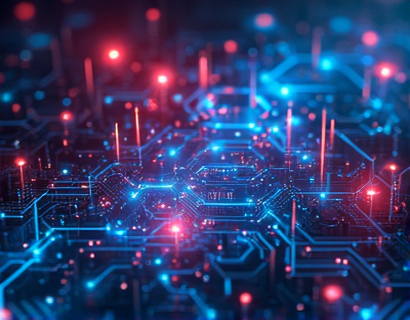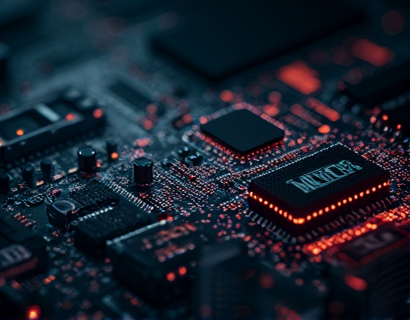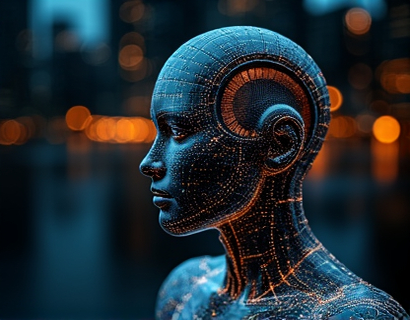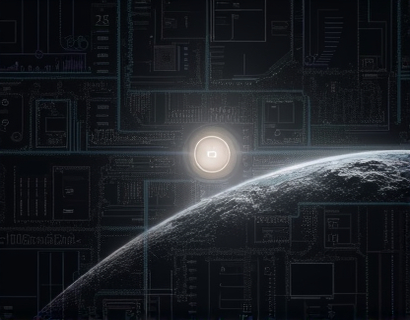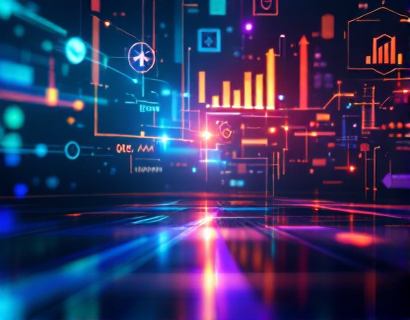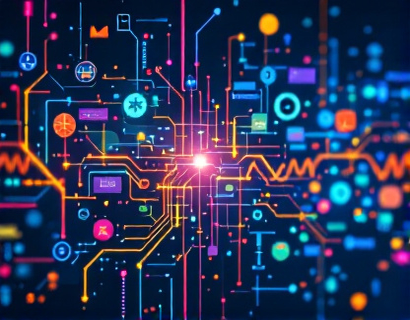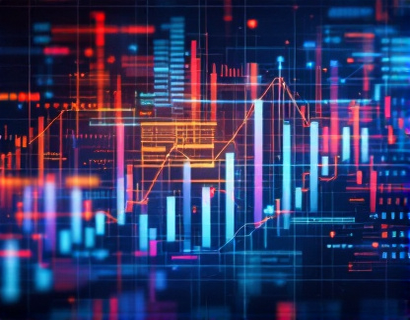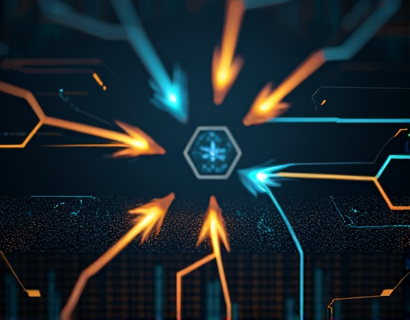Decentralized Productivity: Maximizing Efficiency with AI and Crypto in Ucosystem Applications
The integration of cryptocurrency and artificial intelligence (AI) is ushering in a new era of digital productivity, particularly within decentralized ecosystems. This transformative convergence offers unprecedented opportunities to enhance efficiency, simplify tasks, and redefine how we interact with technology. As we delve into the intricacies of this fusion, it becomes clear that the potential for innovation is vast, impacting various sectors from business and finance to healthcare and beyond.
Decentralized applications, often referred to as dApps, operate on blockchain technology, which ensures transparency, security, and decentralization. When AI is integrated into these dApps, the result is a powerful toolset that can automate complex processes, analyze vast amounts of data, and provide insights that were previously unattainable. This article explores the cutting-edge applications of AI and crypto in decentralized productivity, highlighting how these technologies are reshaping the digital landscape.
Understanding Decentralized Productivity
Decentralized productivity refers to the use of decentralized technologies to improve workflows, collaboration, and task management. Traditional productivity tools often rely on centralized servers, which can be vulnerable to security breaches, downtime, and data manipulation. In contrast, decentralized applications distribute data and processing across a network of nodes, eliminating single points of failure and enhancing security.
The benefits of decentralized productivity are manifold. Firstly, it promotes greater transparency as all transactions and interactions are recorded on a public ledger. This transparency builds trust among users and reduces the risk of fraud. Secondly, decentralized systems are more resilient, as the network can continue to function even if some nodes fail. Lastly, these systems often operate on a permissionless basis, allowing anyone to participate without the need for intermediaries.
AI in Decentralized Ecosystems
AI plays a crucial role in enhancing the capabilities of decentralized ecosystems. By leveraging machine learning algorithms, dApps can automate routine tasks, optimize resource allocation, and provide personalized experiences to users. For instance, AI-driven chatbots can handle customer inquiries, freeing up human resources for more complex tasks. Predictive analytics can forecast trends and behaviors, enabling proactive decision-making.
One of the key advantages of AI in decentralized systems is its ability to operate independently and make decisions based on predefined rules and data patterns. This autonomy is particularly valuable in decentralized environments where centralized control is not feasible. AI can also enhance security by detecting anomalies and potential threats in real-time, ensuring the integrity of the network.
Cryptocurrency and Decentralized Finance (DeFi)
Cryptocurrency is a fundamental component of decentralized productivity, serving as the medium of exchange within decentralized finance (DeFi) platforms. DeFi applications offer a range of financial services, including lending, borrowing, trading, and yield farming, all without the need for traditional financial intermediaries.
AI can significantly enhance DeFi by providing sophisticated risk management tools, optimizing trading strategies, and personalizing financial advice. For example, AI algorithms can analyze market data to predict price movements, helping users make informed investment decisions. Smart contracts, which are self-executing contracts with the terms directly written into code, can be enhanced with AI to automate complex financial operations and ensure compliance with regulatory requirements.
Cutting-Edge Applications of AI and Crypto in Productivity
Several innovative applications are already leveraging the synergy between AI and cryptocurrency to revolutionize productivity. One such application is decentralized cloud storage solutions that use AI to optimize data storage and retrieval. These platforms not only ensure data security and privacy but also reward users with cryptocurrency for contributing storage space.
Another example is AI-powered project management tools built on blockchain. These tools can automate task assignments, track progress, and ensure accountability through transparent and immutable records. AI can analyze team performance data to identify bottlenecks and suggest improvements, enhancing overall project efficiency.
In the realm of content creation, AI-driven writing and design tools integrated with decentralized platforms allow creators to collaborate seamlessly and monetize their work through cryptocurrency. These tools can generate high-quality content, from articles and social media posts to graphic designs, at a fraction of the cost and time required by traditional methods.
Enhancing Collaboration and Communication
Decentralized communication platforms are another area where AI and crypto are making significant impacts. These platforms use blockchain to ensure secure and private messaging, while AI-powered translation and summarization tools break down language barriers and enhance understanding. AI-driven analytics can also provide insights into communication patterns, helping teams improve collaboration and productivity.
Virtual and augmented reality (VR/AR) applications within decentralized ecosystems further enhance collaboration by creating immersive environments where team members can interact as if they were in the same physical space. AI can personalize these experiences, adapting the environment to individual preferences and needs, thereby increasing engagement and effectiveness.
Challenges and Considerations
Despite the numerous benefits, the integration of AI and cryptocurrency in decentralized productivity is not without challenges. One major concern is the scalability of blockchain networks, which can struggle to handle high volumes of transactions. However, ongoing developments in blockchain technology, such as layer 2 solutions and sharding, are addressing these issues.
Another challenge is the regulatory landscape, as the use of cryptocurrency and decentralized applications is subject to varying laws and regulations across different jurisdictions. Compliance remains a critical factor for the widespread adoption of these technologies. Additionally, the technical complexity of AI and blockchain can be a barrier for some users, necessitating user-friendly interfaces and educational resources.
Future Prospects
The future of decentralized productivity, powered by AI and cryptocurrency, looks promising. As technology continues to advance, we can expect more sophisticated and user-friendly applications that further blur the lines between the digital and physical worlds. The convergence of these technologies will likely lead to the creation of entirely new industries and business models, driving economic growth and innovation.
Moreover, the adoption of decentralized productivity tools is expected to increase as more organizations recognize the benefits of transparency, security, and autonomy. The rise of Web 3.0, a decentralized internet powered by blockchain, will play a crucial role in this transformation, providing a foundation for a more open and equitable digital ecosystem.
In conclusion, the integration of AI and cryptocurrency in decentralized productivity applications is poised to revolutionize how we work and interact with technology. By harnessing the power of these innovative tools, we can achieve greater efficiency, security, and collaboration, paving the way for a more decentralized and empowered digital future.




